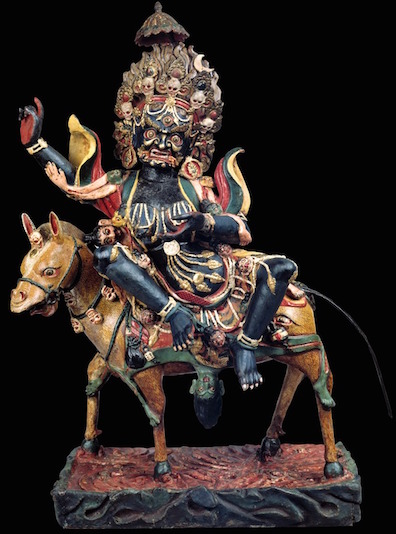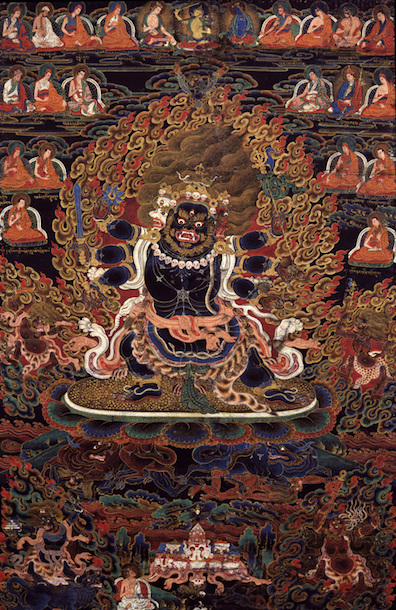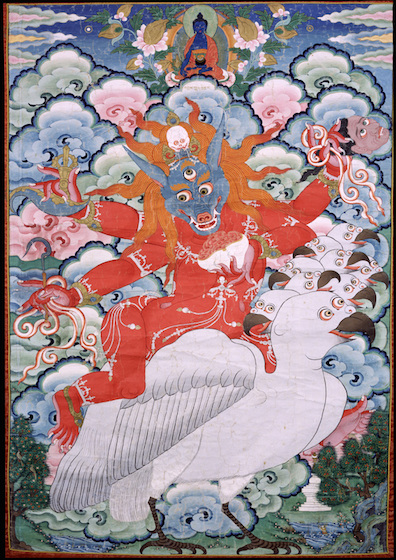
The Rubin Museum opened its doors to the public in the fall of 2004. Among the four inaugural exhibitions was “Demonic Divine: Himalayan Art and Beyond,” an exploration of wrathful deities, which ran through March 2006.
Featuring more than 50 richly detailed paintings and sculptures, “Demonic Divine” investigated the ways in which seemingly violent, grotesque figures actually represent benevolence and protection.
Among the exhibition highlights was this 19th century sculpture of Magzor Gyalmo, the Queen that Repels Armies. She sits on a mule standing in a sea of blood and her saddle and cloth are a flayed human skin. Contrary to her menacing appearance, Magzor Gyalmo is actually a form of the principal female protector deity of Tibet, Palden Lhamo.

The terrifying appearance of The Killer of Death (Black Yamari), who is depicted in the 18th century Tibetan painting below, reflects his power to destroy obstacles that block one’s capacity to lead a fulfilling life, which will aid in achieving enlightenment.

Rounding out our look back at “Demonic Divine” is this witty painting of the Red Wolf-Headed Protectress and Mistress of the Dakinis, which, despite its gruesome subject matter, contains elements of playfulness. A clever contrast is presented between the grinning, ferocious wolf-head and the bird’s disoriented, wide-eyed gaze.

For more about these and other objects from our collection, click here and check back monthly to learn about other exhibitions from our archives.

